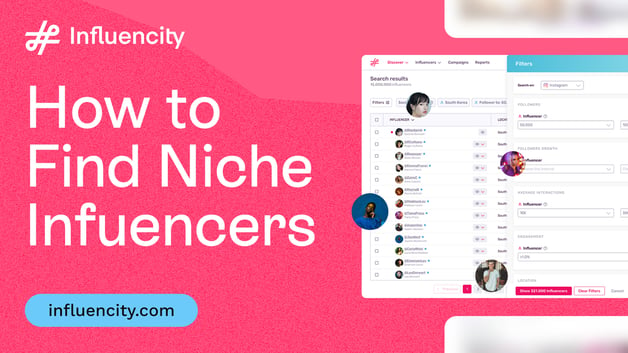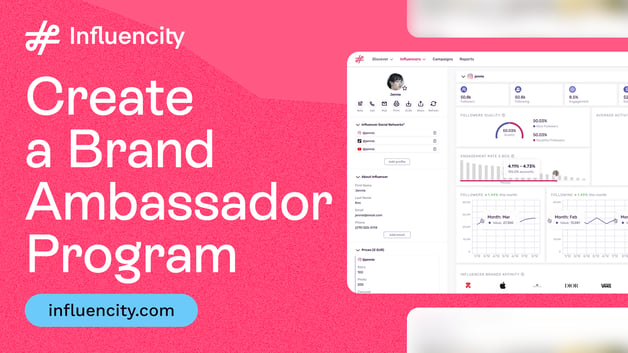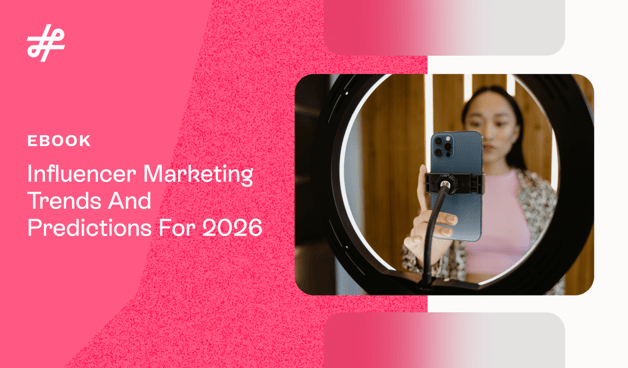Brand Ambassador: Meaning, Profiles and Examples
A brand ambassador is someone who promotes your brand on a long-term basis. They represent your brand values and showcase who you are through a number of consumer touchpoints. Their success is down to their ability to share authentic recommendations built from the ongoing relationship they have developed with your brand. And this makes them a valuable asset, provided you understand the brand ambassador meaning, in all its forms, and follow the right strategy.

In order to nurture an effective brand ambassador relationship, you need to consider a number of important aspects. This includes understanding what brand ambassadors are, what they do, and which types of brand ambassadors exist. That way you can find the right brand ambassador for your brand and develop an effective collaboration.
Let’s take a look at the brand ambassador meaning and different profiles out there together with a few examples to help you understand which type would work best for your brand.
Understanding the True Brand Ambassador Meaning and Role
Brand ambassador meaning:
A brand ambassador is someone who publicly promotes and endorses your brand on an ongoing basis. They represent your brand in the public arena and embody the values and identity that your brand seeks to promote.
Although this may sound similar to what an influencer does, a brand ambassador actually performs a slightly different role. Essentially, the main difference between the two concepts is that brands tend to collaborate with influencers on a short-term basis for specific campaigns. In contrast, a partnership with a brand ambassador is usually founded on a long-term relationship.
Influencers are also far less likely to have used a brand’s product in the past, whereas brand ambassadors tend to have first-hand experience with the products that they are promoting. This might be because they used to work for the company, they have in-depth knowledge of the products they promote, or they have been a satisfied customer at some point in the past.
Because ambassadors have a deeper understanding of a brand, they are far more qualified to embody its values and communicate the key brand message. Plus, because they promote brands through genuine recommendations, content usually comes across as being more authentic. This is because they are sharing an endorsement because they genuinely believe in the value of a brand.
A recent example of this dynamic is the collaboration between Serena Williams and Bumble. Since 2019, Williams has been a global ambassador for Bumble, using her platform to promote the brand’s message of empowering women. Her long-term partnership involves commercials, social media, and event appearances, making her a strong ambassador who aligns with Bumble’s core values. Williams’ commitment to women’s empowerment reflects the brand's identity, making her endorsement come across as genuine and authentic.
Why Brand Ambassadors Are Important for Brands
Now that we’ve discussed the brand ambassador meaning, let’s take a look at how the right fit can benefit your brand.
Benefits of collaborating with a brand ambassador:
- You get increased exposure through a variety of channels. Aside from social media influencer marketing, this might include promoting and co-hosting online and offline events or sharing feedback on new products. You are also more likely to gain increased brand awareness on a larger scale as a result of word-of-mouth recommendations.
- Because a brand ambassador has a deeper understanding of who you are, they are more likely to understand your mission and values. This helps them serve as an extension of your brand, rather than someone who promotes a specific branded campaign.
- Brand ambassadors promote your products because they genuinely believe they are of value. This makes them more likely to commit to you and your brand, and less likely to form a partnership with one of your competitors.
- Improved ROI. Brand ambassadors contribute to long-term customer loyalty and retention, which results in higher customer lifetime value (CLTV). Their authentic, consistent promotion can lead to more organic growth and conversions, maximizing the return on investment over time.
As a result of all the above, a brand ambassador can help your audience engage with your brand at an authentic level, increasing your reach, building more trust, and boosting your revenue.
Different Types of Brand Ambassadors: Key Profiles Explained
There are a number of different types of brand ambassadors out there. These profiles depend on a range of factors, including the level of influence an ambassador has in the market, the type of agreement they have signed, and the role that they play.
Generally speaking, brand ambassadors can be split into 7 different profiles.
Let’s explore these profiles.
1. Peer Advocates
A brand ambassador is typically a loyal customer who has developed a genuine connection with your brand through personal experience. Unlike influencers who may promote a product temporarily, brand ambassadors consistently advocate for your products because they truly believe in their value. They often share their positive experiences with like-minded people—such as friends, peers, or specific communities—using word-of-mouth, testimonials, and authentic recommendations. This organic form of promotion helps build trust, making it easier for potential customers to relate to the brand.
Example: A well-known example of a brand ambassador is Nike's partnership with Colin Kaepernick. Kaepernick, a former NFL quarterback and activist, became a brand ambassador after his personal beliefs aligned with Nike's message of social justice and activism. His authentic connection with the brand and his advocacy for important social causes made him a credible spokesperson. His promotion of Nike, combined with his activism, resonated with many of Nike's customers, creating a deeper emotional connection with the brand.
2. Niche Authorities
These ambassadors are considered experts in their field, such as celebrities and notable figures. Their established reputation as a voice of authority helps their audience trust their recommendations. These ambassadors are also known as powerful audience authority ambassadors.
Example: David Beckham is a niche authority for Adidas. As a world-famous soccer star and fashion icon, Beckham’s expertise in sports and style lends credibility to Adidas' products. His endorsement resonates with Adidas' audience, who trust his authority in sportswear and lifestyle products.
3. Experiential or Event Ambassadors
Primarily represent brands at organized events. They focus on maintaining one-on-one conversations with potential customers and building relationships. They publicly embody the values reflected by a brand which helps potential customers connect and engage with the brand.
Example: Red Bull often uses event ambassadors during their extreme sports and cultural events. These ambassadors engage with attendees, hand out samples, and embody the energy and adventurous spirit that the brand represents. For instance, Red Bull's ambassadors at sports events like Red Bull Rampage promote the brand through personal interaction with the audience.
4. Formal Ambassadors
A brand ambassador that has signed a formal agreement with your brand. You provide them with specific content guidance about your brand and your goals and they agree to meet certain standards when they represent you. This might be creating a specific number of branded posts or organizing a series of official events where they serve as brand advocates. You might also get them to use specific influencer marketing tools.
Example: Jennifer Aniston became a formal ambassador for Vital Proteins. Aniston has signed a long-term contract with the company and frequently posts branded content on her social media, in addition to appearing in commercials. She promotes their collagen products by sharing her personal health and wellness journey, aligning with the brand's goals.
5. Informal Ambassadors
A brand ambassador that has not signed a formal agreement with your brand. Similar to a referral or affiliate program. Usually consists of enthusiastic customers who want to share your brand because they love it. Many informal ambassadors share unique codes with their followers and then get a reward when someone uses the code to purchase a product.
Example: Starbucks has a robust informal brand ambassador program, where loyal customers share their love for the brand on social media. These customers often post photos of their Starbucks beverages, tag the brand, and use unique promotional codes, benefiting from rewards programs like Starbucks Rewards.
6. Enthusiasts
Advocates who explicitly embody your brand values and commit to your brand philosophy. Often promote your brand for little or no compensation because they are so enthusiastic about it. This might be through reviews or word-of-mouth.
Example: Patagonia has a strong following of enthusiasts who actively promote the brand’s commitment to environmental sustainability. Many customers share stories, reviews, and testimonials about how Patagonia’s products align with their eco-friendly lifestyles, without direct compensation from the brand. Patagonia’s "Worn Wear" program, which encourages customers to repair and reuse their products, often drives this grassroots enthusiasm.
7. Employee Ambassadors
Past or present employees who publicly endorse your brand, usually through social media. They have insider knowledge of your brand, goals, and target audience. This helps them effectively reflect your brand identity.
Example: Xbox Ambassadors is a program where employees and fans alike promote Xbox products and inclusivity within the gaming community. Ambassadors run community events, offer support, and share the brand's values.
How to Identify the Right Brand Ambassador for Your Business
If you have made up your mind and an ambassador is the right partnership for you, choosing the perfect ambassador is crucial because they will represent your brand and influence your audience’s perception. Whether you’re a small business or a large corporation, following a few simple steps will help ensure you find the right fit to promote your products or services effectively.
Here are some best practices to help with this:
- Know your audience. The first step is understanding who your customers are. Think about their age, interests, and values. A brand ambassador should connect with this group, so it’s important to choose someone who shares similar values and appeals to your target market. For example, if your audience is young and active, an influencer who promotes a healthy, sporty lifestyle would be a great choice.
- Align with your brand values. Your brand ambassador should represent the values your business stands for. If sustainability is important to your brand, look for influencers or public figures who are passionate about environmental issues. This makes their promotion of your brand feel more genuine and authentic, helping you build trust with your audience.
- Check their engagement. It’s not just about the number of followers—engagement is key. A good brand ambassador will have a strong, interactive relationship with their audience. Check their comments and likes to see how engaged their followers are with their content. This shows they have a loyal fanbase that values their opinion, making their endorsement of your brand more impactful.
- Consider long-term partnerships. Instead of one-off promotions, it’s often better to form long-term relationships with ambassadors. This helps create a consistent message and builds a stronger connection between the ambassador, your brand, and their audience.
Brand Ambassador Examples
The best way to understand the true brand ambassador meaning is by looking at a few examples. That way, you can see how well-known brands collaborate with different brand ambassador profiles so that you can work out which type might work best for you.
Patagonia
Patagonia often relies on Instagram celebrities like Alex Honnold, a renowned rock climber, to serve as brand ambassadors and promote its eco-friendly products. Honnold, famous for his free solo climbs, embodies Patagonia’s values of sustainability and adventure. He frequently showcases Patagonia gear on his expeditions, reinforcing the brand’s rugged and nature-oriented identity. This collaboration appeals to environmentally conscious adventurers and strengthens Patagonia’s image as a brand for serious outdoor enthusiasts.
Red Bull
Red Bull’s brand ambassador program relies on peer advocates to reach younger demographics. For example, Red Bull has collaborated with extreme sports influencers like Travis Pastrana, a renowned motorsports athlete and stunt performer known for his fearless stunts and high-energy performances, to promote the brand through thrilling content that resonates with Gen Z’s adventurous spirit. By leveraging his daring personality and widespread influence, Red Bull reinforces its connection with adrenaline-fueled experiences and action sports, making the brand a staple in extreme sports culture.
Dell
Dell often uses employee ambassadors to promote its brand. The company does this because it understands that its employees are the best people to spread its message and connect with its audience. Perhaps the most notable Dell employee brand ambassador is Bryan Jones, a Senior Vice President at the company. Jones frequently shares insights on the tech industry, innovation, and Dell’s solutions on platforms like LinkedIn. His posts showcase his expertise and emphasize Dell’s leadership in IT solutions, reaching professionals across the globe through his authentic engagement. His activity has helped strengthen Dell’s reputation as a thought leader in technology while also creating a deeper connection with its audience through a credible internal voice.
Nike
Nike partners with athletes like Serena Williams to promote their products. Serena, one of the greatest tennis players of all time, has worked with Nike for many years. She wears their gear during her matches and in her daily life, which inspires her millions of fans to connect with the brand. By working with athletes like Serena, Nike shows its commitment to excellence and encourages people to push their limits, both in sports and in life.
Adidas
Finally, Adidas leverages the power of brand ambassadors like Selena Gomez to promote its products. Selena, known for her influence in both music and fashion, frequently showcases Adidas outfits on her social media platforms. Her role as a brand ambassador helps Adidas reach younger, fashion-conscious audiences by blending fitness and style. Through her posts, she promotes a healthy, active lifestyle while keeping her look trendy, making Adidas appealing to those who value both fashion and sportswear.

Tags:






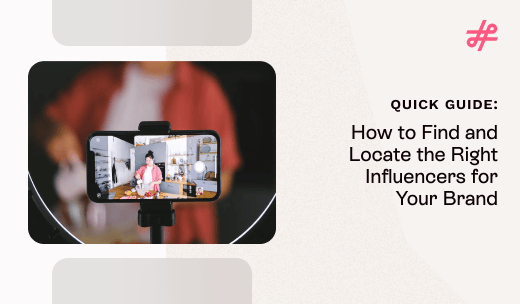


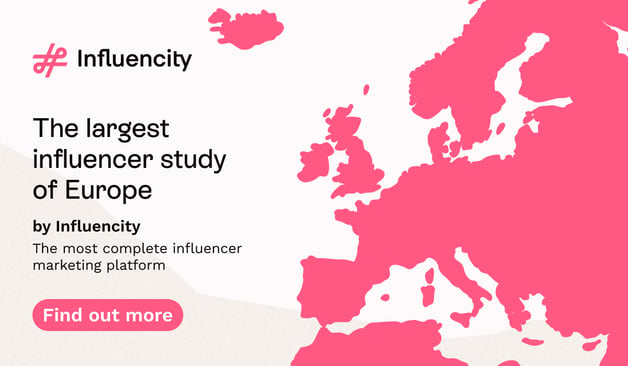









%20and%20How%20Can%20They%20Benefit%20Your%20Brand%20article.jpg?length=628&name=What%20Are%20Key%20Opinion%20Leaders%20(KOL)%20and%20How%20Can%20They%20Benefit%20Your%20Brand%20article.jpg)
